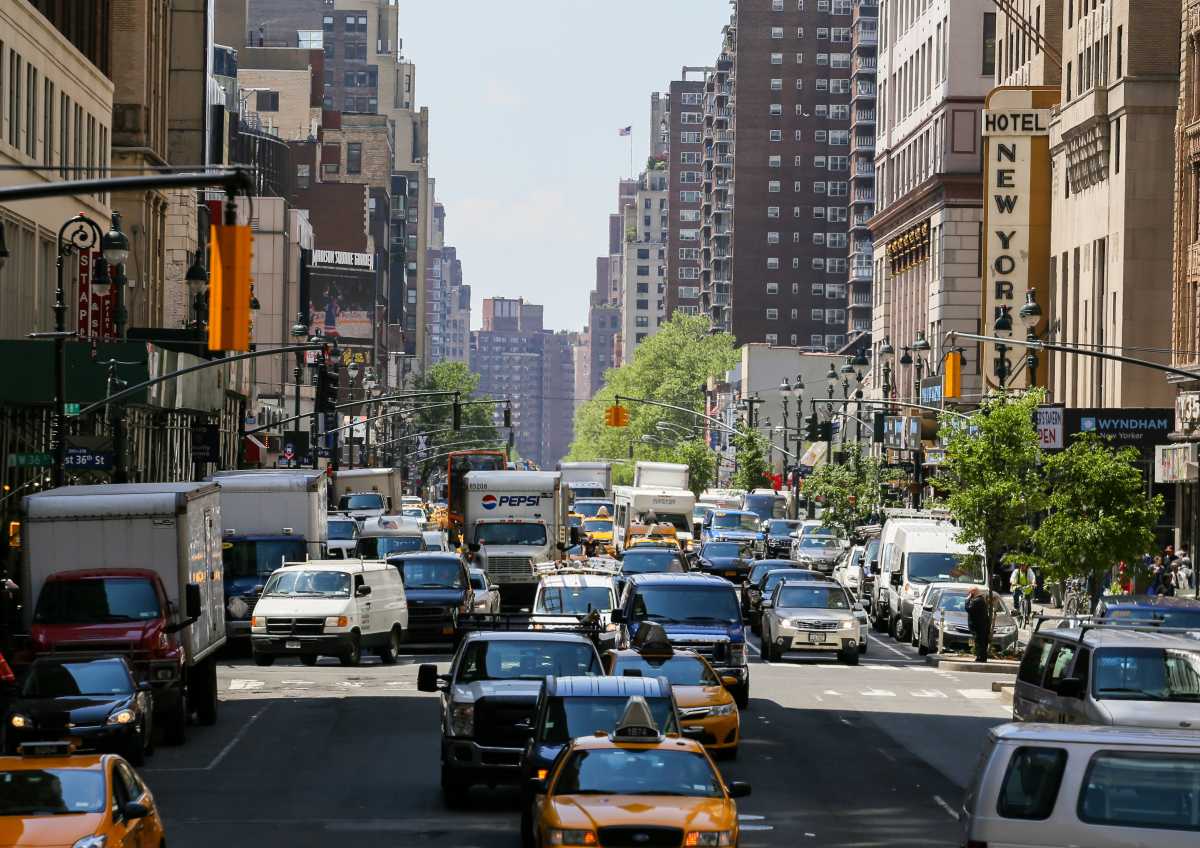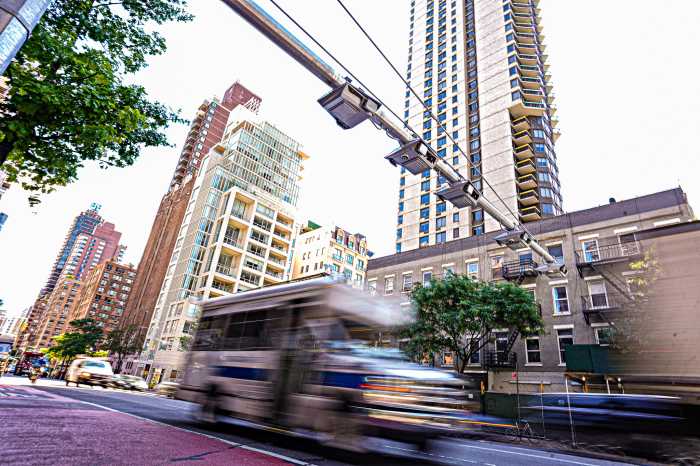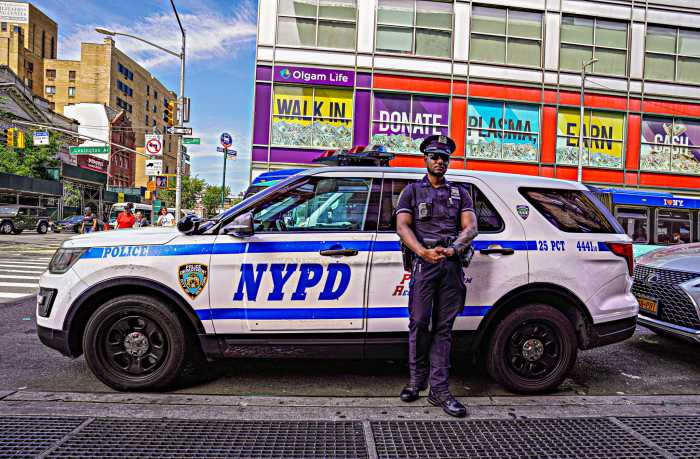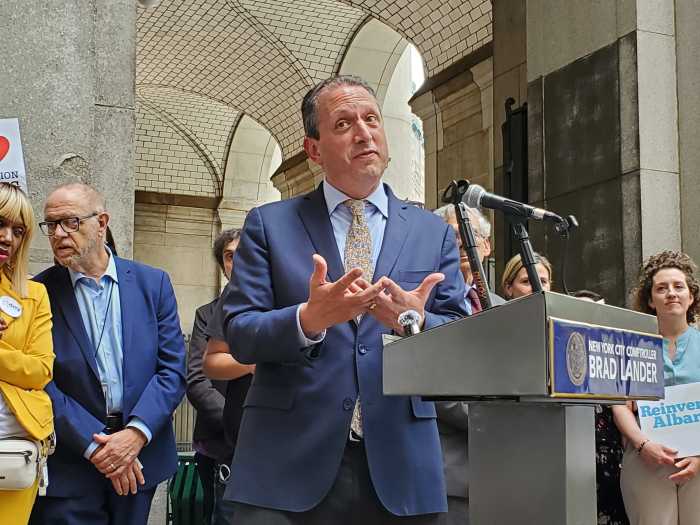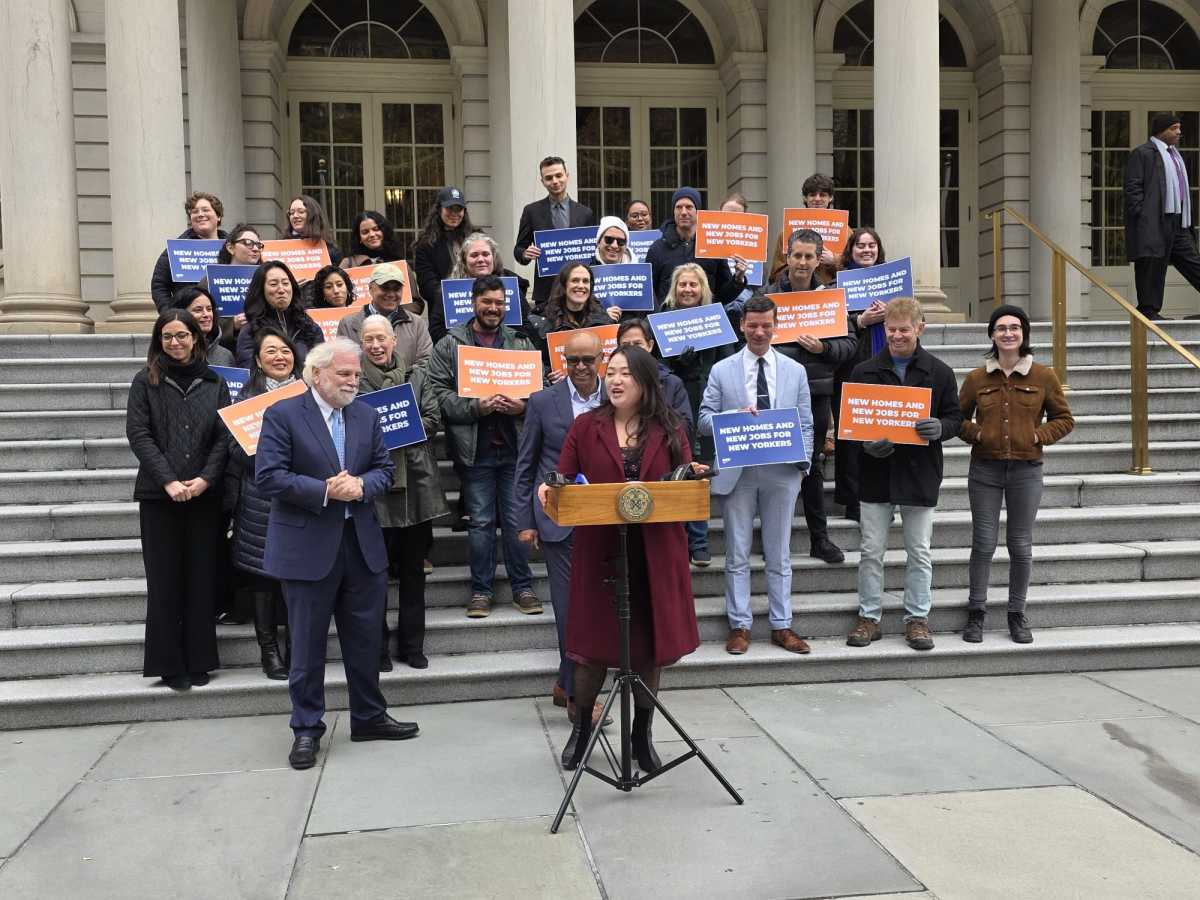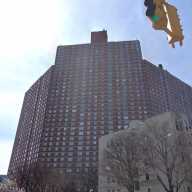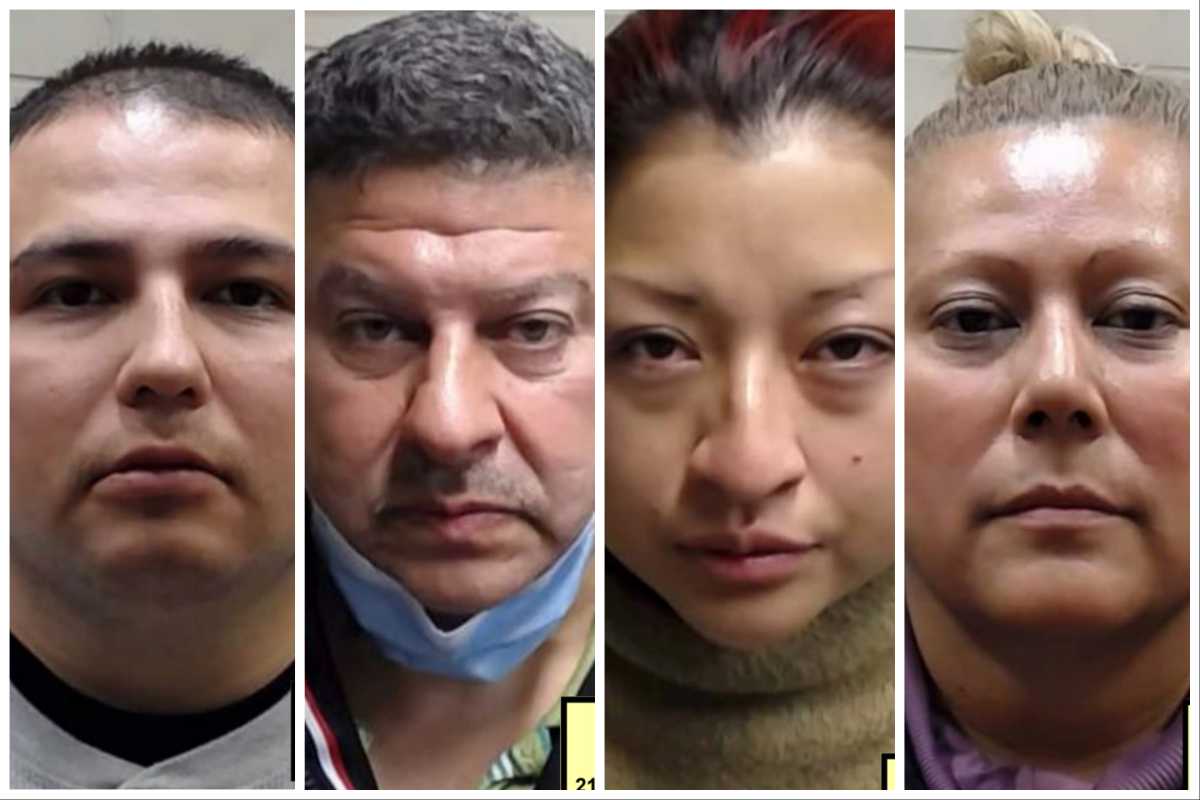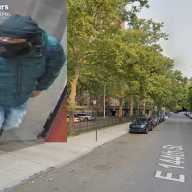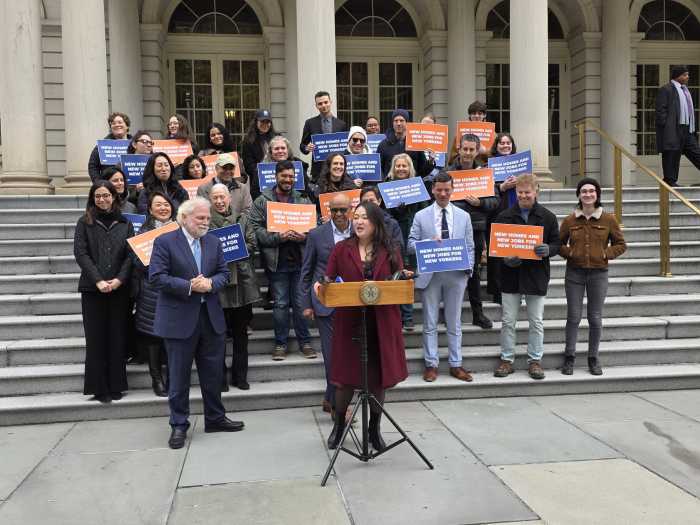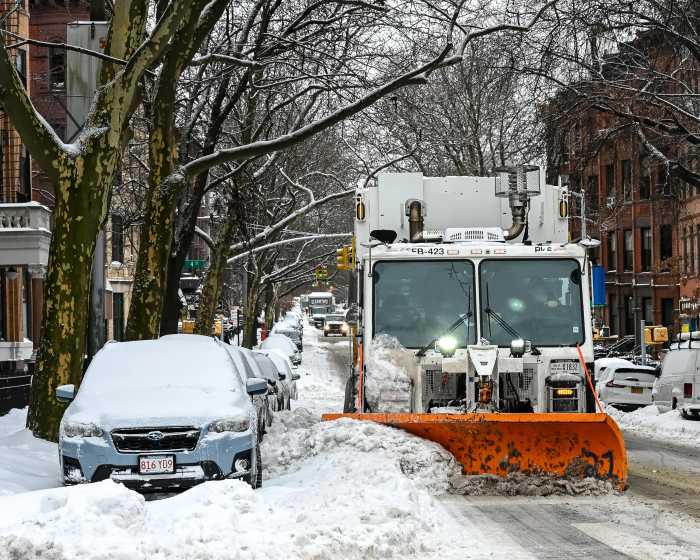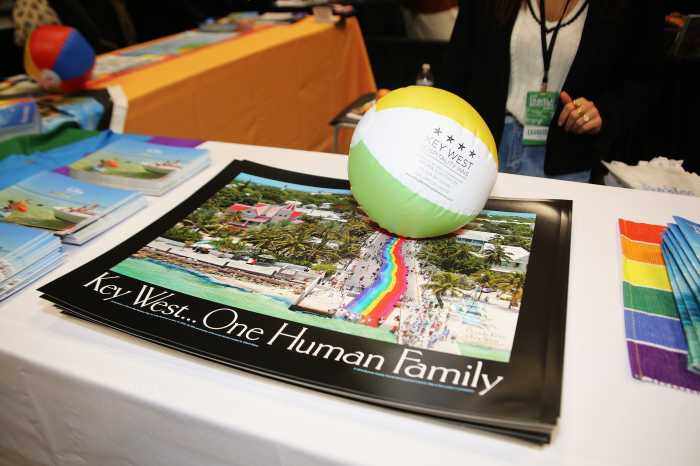Gov. Kathy Hochul’s indefinite pause on congestion pricing has officially been challenged in court, with transit riders, environmental advocates, and civic groups filing lawsuits Thursday requesting a judge order the immediate implementation of the stalled Manhattan tolling program.
The City Club of New York, a good government group, filed the first of Thursday’s cases along with Hell’s Kitchen residents Christine Berthet and Kathleen Treat, and accuses the governor of violating the 2019 state law ordering the MTA to implement a congestion pricing program to fund $16.5 billion of investments to modernize the transit system, plans that are now on ice indefinitely.
The plaintiffs in City Club v. Hochul assert that the governor has no authority via the underlying statute, the Traffic Mobility Act, to actually implement the program or choose its schedule, arguing the law grants that authority instead to the MTA. The MTA had intended to start the program on June 30 and had spent half a billion dollars on contracts for tolling infrastructure before the governor abruptly announced she would pause implementation, less than a month in advance.
Attorneys assert that Hochul’s transportation commissioner, Marie Therese Dominguez, is illegally withholding her signature from a procedural document allowing the start of a “value pricing pilot program,” without a “valid explanation for its decision,” and describe the governor’s pause as “quite literally, lawless.”
“This is a case about democracy. It’s a case that asks the question, [of] whether an executive official is allowed to defy the law, to ignore the will of the Legislature, and to upend decades of reform, process, and policymaking simply because at the last minute she changed her mind,” said Andrew Celli, a partner at Emery Celli Brinckerhoff Abady Ward & Maazel who is representing the City Club. “The obvious answer to this question is no: Gov. Hochul cannot defy the law, she is bound by it.”
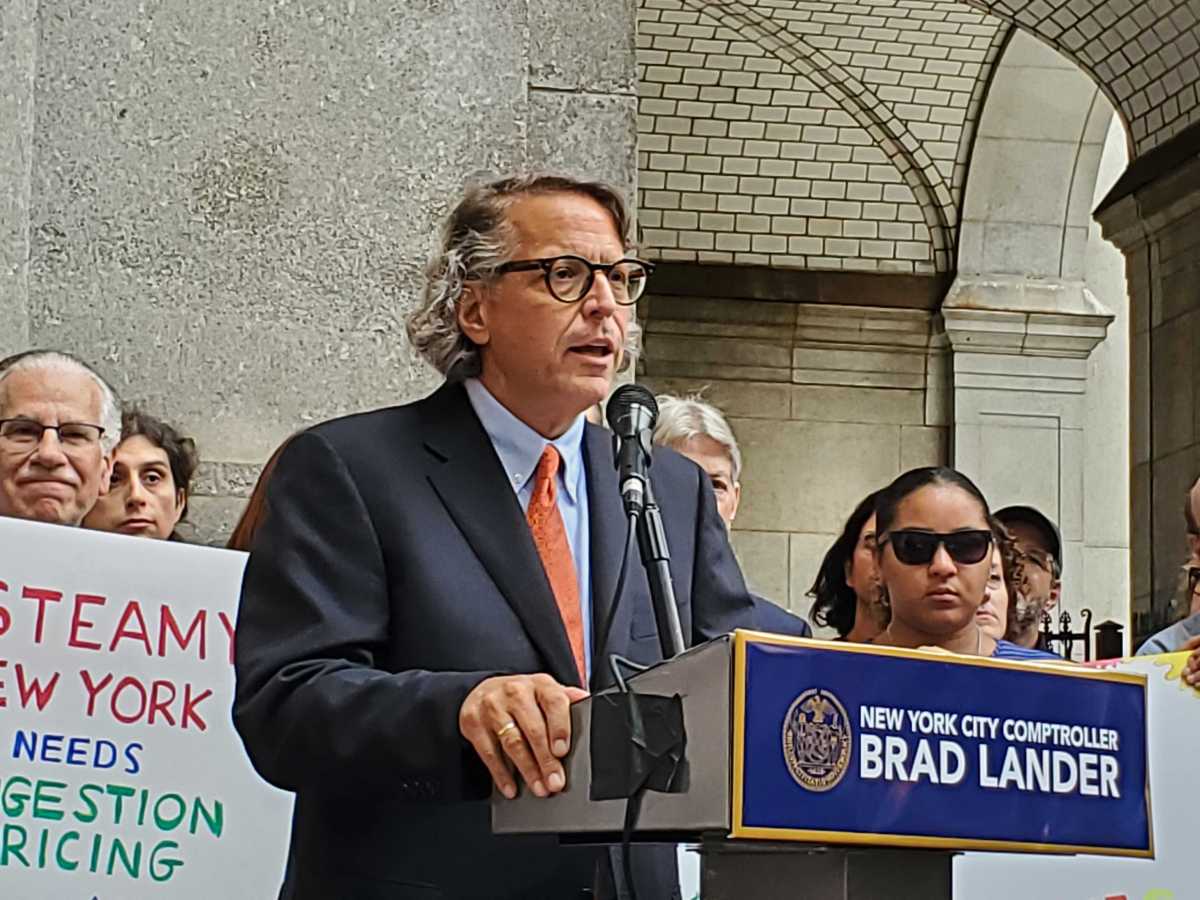
The other suit, filed by the Riders Alliance, New York City Environmental Justice Alliance, and Sierra Club, accuses Hochul of violating the Climate Leadership and Community Protection Act, the 2019 state law codifying New York State’s long-term goals for cutting carbon emissions, as well as the 2022 Green Amendment to the state constitution, asserting New Yorkers’ right to a “healthful environment,” including clean air and water.
The plan to charge most motorists $15 to drive into Manhattan was forecasted to drop vehicle traffic in New York’s central business district by 17%, and in doing so produce slight drops in emissions of carbon and noxious particulate matter throughout the tri-state area.
“Every official in state government, from the governor on down, needs to take account of whether their actions help get us towards our goal of reducing emissions or take us further from it,” said Dror Ladin, a lawyer with Earthjustice representing the plaintiffs in Riders Alliance v. Hochul. “There’s no question what the governor has just done. Her decision is absolutely at odds with the Climate Leadership and Community Protection Act.”
Both suits request that a judge order Hochul’s pause to cease and that the start of congestion pricing be executed in short order.
Each suit was filed under Article 78 of the state’s civil legal code, which challenges the decisions of government agencies; Celli said he expects the legal team to argue in front of a judge by September. Taxpayer money is not funding the litigation in either case, the Comptroller said.
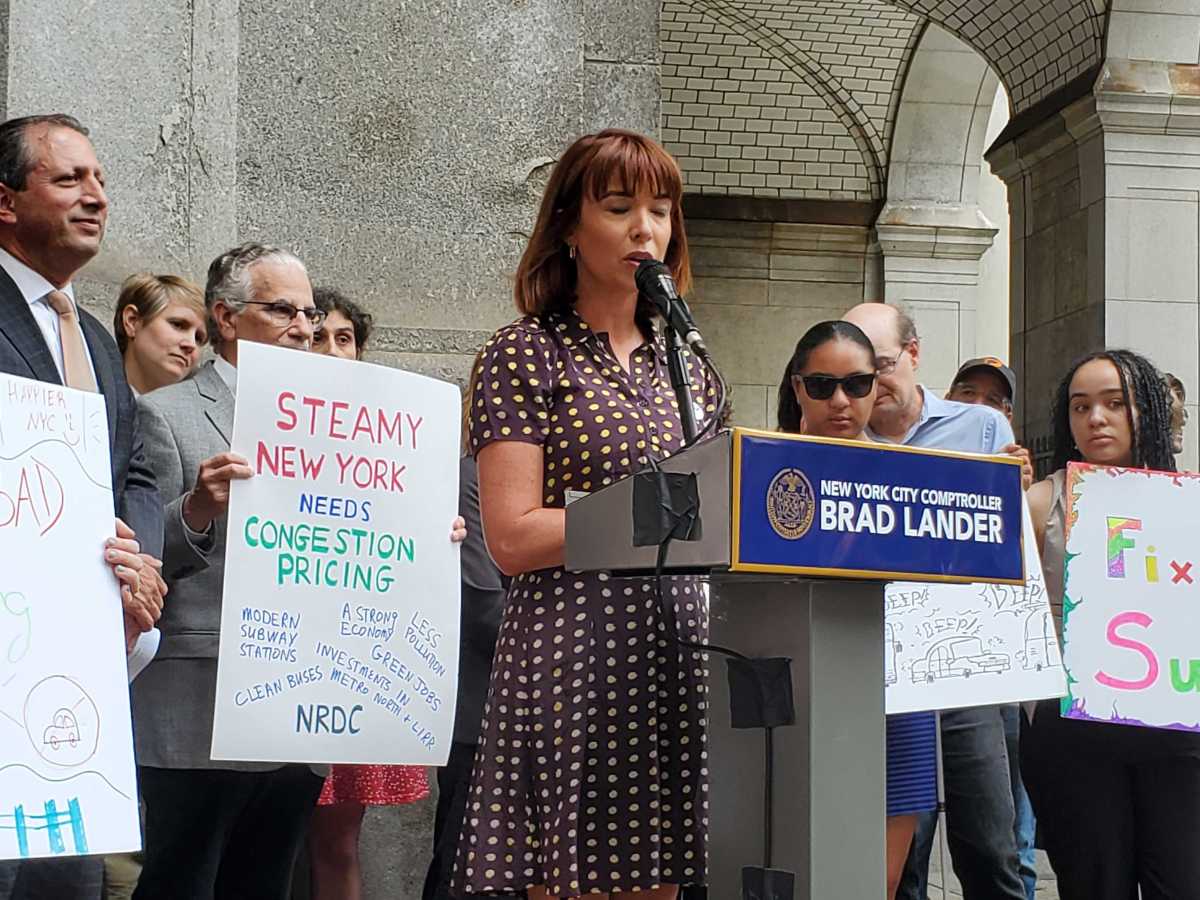
More suits coming?
Further suits could still be in the pipeline, said City Comptroller Brad Lander, who recruited legal minds and potential plaintiffs to the effort to restore the tolling scheme.
Legal research is still underway preparing for a potential civil rights suit by riders with disabilities, who will no longer benefit from dozens of subway elevators and accessibility upgrades that were to be funded by congestion pricing, the comptroller said; the MTA is under a federal court order to make 95% of its stations accessible by 2055, but only about 30% are currently.
Hochul said she paused congestion pricing over concerns about the toll’s financial hit on drivers and broader economic implications, especially for Midtown. The program was also the subject of much litigation before the pause, in those cases with plaintiffs attempting to stop its implementation.
Most of those suits — including those filed by the United Federation of Teachers, the City Council’s conservative Common Sense Caucus, and the town of Hempstead on Long Island — have been largely dismissed in federal court. Suits from the state of New Jersey and the Trucking Association of New York are still active.
Hochul rep: ‘Get in line’
In a statement, a spokesperson for Hochul explicitly compared those lawsuits to the new ones, arguing they were all attempting to “weaponize the judicial system.”
“Get in line. There are now 11 separate congestion pricing lawsuits filed by groups trying to weaponize the judicial system to score political points,” said Hochul spokesperson Maggie Halley. “But Governor Hochul remains focused on what matters: funding transit, reducing congestion, and protecting working New Yorkers.”
Despite her assertions, Hochul has not yet identified any alternative funding sources for the billions of dollars in investments that would have been funded by congestion pricing, which include extending the Second Avenue Subway, modernizing ancient subway signals that contribute to delays, and making the system more accessible for disabled riders. The MTA says its planned modernization program now must give way to piecemeal capital work intended to keep the system from “falling apart.”
On Wednesday, the state Senate’s new Transportation Committee Chair, Jeremy Cooney (D-Rochester), called on Hochul in a USA Today op-ed to produce a “100-day plan” to fully fund the MTA Capital Plan — effectively, to put up or shut up.
Lander disputed the governor’s accusation that the plaintiffs are “weaponizing the justice system.”
“The governor does not have unilateral authority to cancel congestion pricing. It is the law, and that’s why these lawsuits are being filed,” said Lander. “Believe me, we wish we did not have to go into court to force the implementation of laws.”
Read More: https://www.amny.com/nyc-transit/



